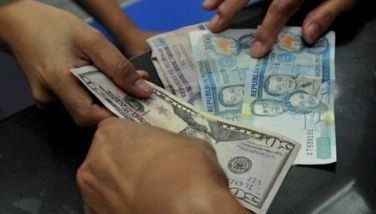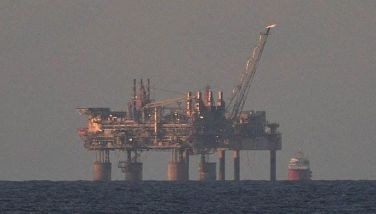‘Asean concerned over reclamation in disputed seas’
MANILA, Philippines - Southeast Asian countries see China’s installation of weapons systems in the South China Sea as unsettling and want to prevent militarization, urging dialogue to stop “recent developments” from escalating, Foreign Affairs Secretary Perfecto Yasay Jr. said yesterday.
Yasay also said foreign ministers of the 10-member Association of Southeast Asian Nations (ASEAN) were unanimous in their concern about Beijing’s reclamation and militarization of manmade islands in the disputed region.
He did not specify which developments provoked the concern, but said the bloc hoped China and the United States would ensure peace and stability.
“They have noticed, very unsettlingly, that China has installed weapons systems in these facilities that they have established, and they have expressed strong concern about this,” Yasay told reporters after a ministers’ retreat on the island of Boracay.
The ministers also reaffirmed the importance of mutual trust and confidence, avoiding actions that may further complicate the situation, and pursuing peaceful resolution of disputes, including full respect for legal and diplomatic processes without resorting to the threat or use of force in accordance with the universally recognized principles of international law, including the 1982 UNCLOS.
“The ministers underscored the importance of the full and effective implementation of the Declaration on the Conduct of Parties in the South China Sea in its entirety, and efforts within the ASEAN-China process to complete a framework of the Code of Conduct (COC), in order to facilitate the early adoption of the COC,” Yasay added.
The Philippines is chairman of the ASEAN this year and will host its annual meetings, some of which are joined by outside powers, including China and the United States.
Friction between the United States and China over trade and territory under US President Donald Trump have fuelled worry that the South China Sea could become a flashpoint, with many Southeast Asian economies heavily dependent on both powers.
China claims most of the energy-rich waters, through which about $5 trillion in ship-borne trade passes every year. Neighbors Brunei, Malaysia, the Philippines, Taiwan and Vietnam also have claims.
China on Friday completed war games involving its aircraft carrier that unnerved neighbors. The US navy on Saturday said its aircraft carrier strike group had begun routine patrols in the South China Sea.
Three days earlier China warned against that, following an incident in early February when a US Navy P-3 plane and a Chinese military aircraft came close to each other over the South China Sea.
Yasay said ASEAN nations recognized policies under Trump were still “evolving” but hoped he would unveil them within the next few months to provide a “more concrete and clearer picture,” especially regarding China.
“We do not know the complete picture of what this foreign policy might be, insofar as its relationship with China is concerned. We are, however, hopeful that the policy that would come out will be positive.”
He also said ASEAN wanted a framework for devising a maritime code of conduct between China and the grouping to be completed by June, and Beijing had shown it was keen for it to be finished.
All parties should ensure that the code, which has made little progress since the idea was agreed upon in 2002, needed to be legally “binding and enforceable,” Yasay added.
- Latest
- Trending





























